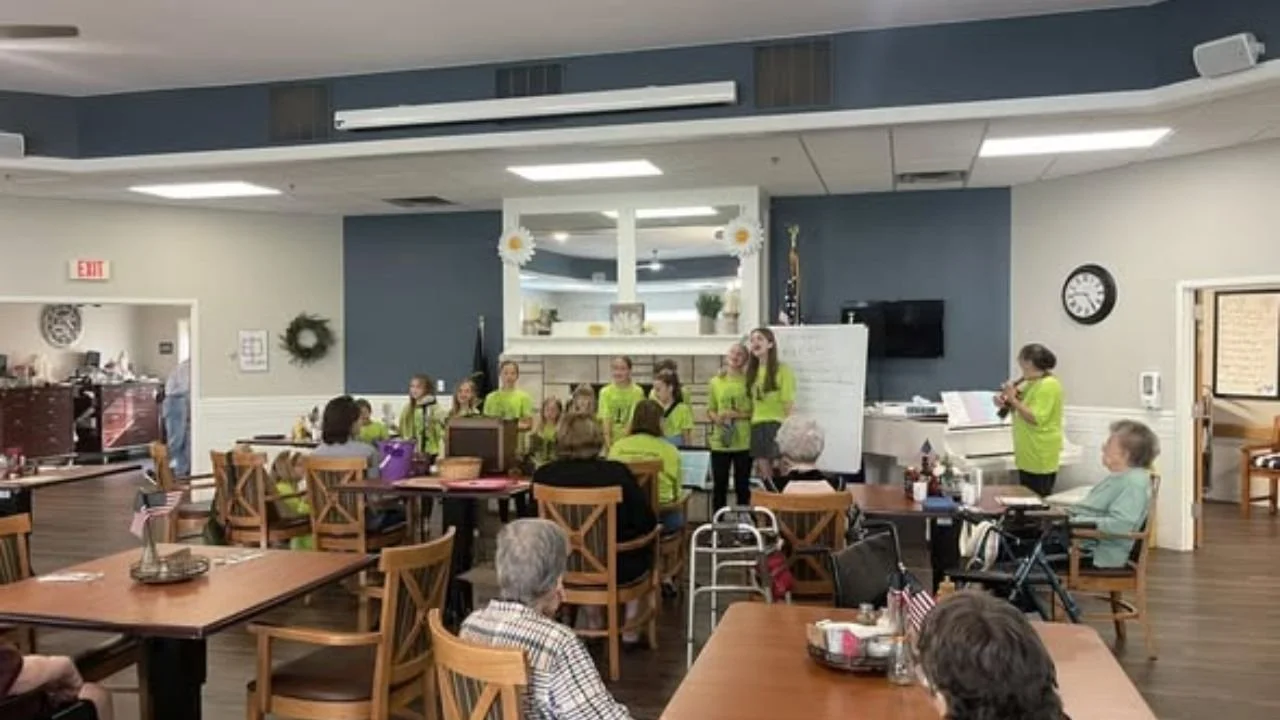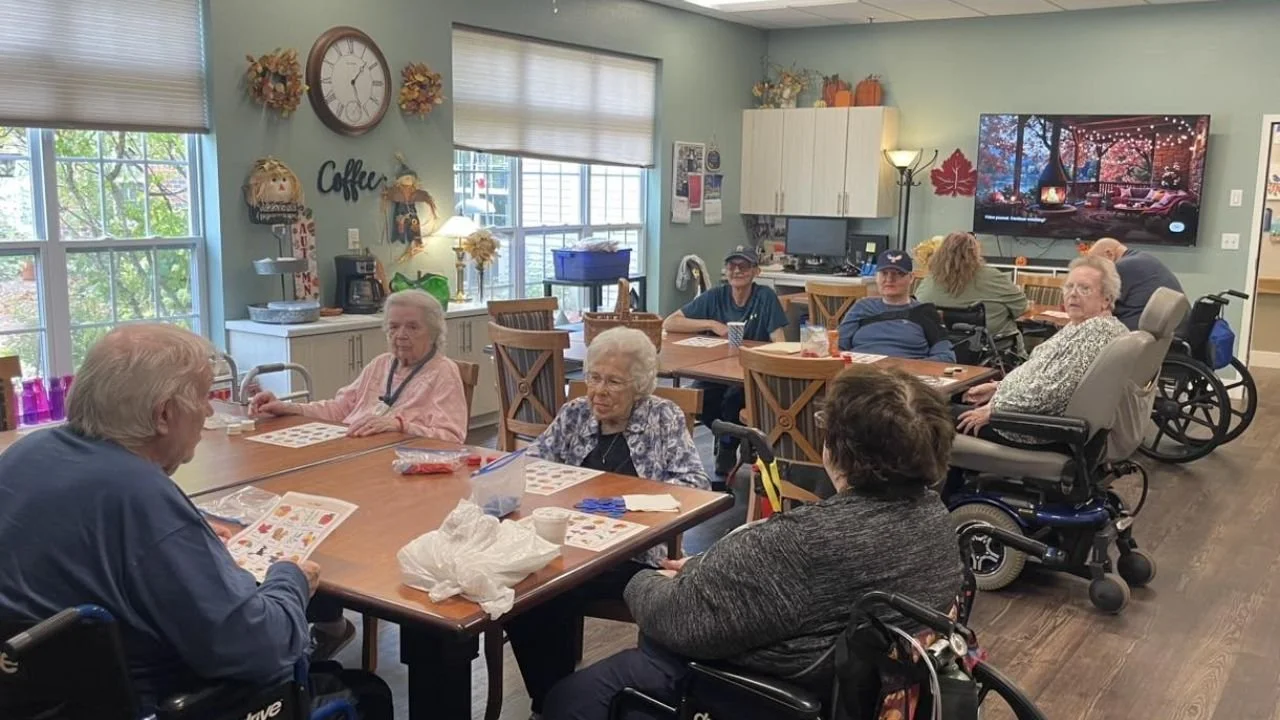Understanding the Highest Level of Assisted Living Care
The highest level of care in an assisted living community represents a significant commitment to supporting residents who need extensive help with their daily lives, yet it does so while fiercely protecting their dignity and independence.
Understanding what is the highest level of assisted living is crucial for families to make confident, informed decisions. This tier of care is designed for individuals with substantial physical or cognitive needs who do not yet require the constant skilled medical attention of a nursing home.
Defining that Highest Level
In many senior living communities, care levels are set to match how much help a resident requires. Also, there is varied terminology, but the core idea is consistent: it’s the tier offering the most intensive support short of a hospital or skilled nursing home.
Some providers call it Level 3 Advanced Assisted Living, others label it Level 4 or Level 5, depending on state regulations. In Minnesota, for example, assisted living communities offering Level 4 or Level 5 care typically provide 24/7 nursing and medical supervision along with complete support for daily activities.
Here are key features:
Hands-on help with almost all Activities of Daily Living (ADLs) like bathing, dressing, toileting, and feeding.
Medical oversight: medication administration, health monitoring, and coordination with doctors.
Increased staffing: caregivers and nurses available around the clock.
Adaptable support: care plans evolve if health declines further.
So when you ask, “What is the highest level of assisted living?” think of the level where independence has significantly declined and full-time professional support is required.
Who Actually Needs This Level of Care?
Understanding who belongs in enhanced assisted living helps clarify what specific services are offered. These residents typically fall into several categories:
People with advanced chronic conditions requiring frequent monitoring
Individuals with significant mobility limitations who need extensive physical assistance
Residents with complex medication regimens that demand careful oversight
Those recovering from serious illnesses or surgeries who aren't ready for independent living
People with progressing dementia who need more structure than memory care alone provides
The common thread? These individuals need more than occasional check-ins. They require consistent, professional attention throughout the day.
Medical Services: What's Actually Included?
The highest tier of assisted living delivers medical services that standard facilities can't match. Here's what sets it apart:
Round-the-Clock Nursing Care
Licensed nurses stay on staff around the clock, not just during business hours. This constant presence means immediate response to medical concerns. Vital sign monitoring happens regularly, sometimes multiple times daily. Blood pressure checks, glucose testing, oxygen saturation readings; these become routine parts of the care plan.
Daily Living Support: Beyond Basic Assistance
Daily activities become major undertakings for residents at this care level. The assistance provided goes well beyond what you'd find in standard assisted living.
Bathing
Support includes two-person assisted transfers, physical help during washing, and the use of specialized equipment such as shower chairs or ceiling lifts to ensure safety and comfort.
Dressing
Caregivers provide hands-on help with each piece of clothing, assist with buttons and zippers, and ensure that outfits are chosen according to the weather and personal preferences.
Toileting
Assistance involves quick responses to calls, help with transfers, incontinence care, and catheter management to maintain hygiene and dignity.
Mobility
Support includes wheelchair assistance, help using walkers, and transfers from bed to chair, ensuring safe and smooth movement throughout the day.
Staff handle these tasks with dignity and professionalism. For residents with catheters or other medical devices, skilled personnel manage the technical aspects safely.
Even at the highest care level, residents enjoy Premium Amenities like walk-in showers, beautiful courtyards, and activity rooms, because comfort and dignity go hand in hand with advanced care.
Therapy Services Brought to Your Doorstep
Enhanced assisted living facilities coordinate multiple therapy services under one roof. This eliminates the stress and logistics of transporting fragile residents to outside appointments.
Physical Therapy - Helps residents maintain or regain mobility after illness or injury. Therapists work on strength, balance, and endurance through targeted exercises.
Occupational Therapy - Focuses on preserving independence in daily tasks. Therapists teach adaptive techniques for dressing, grooming, and eating. They recommend assistive devices and train residents how to use them effectively.
Speech Therapy - Addresses swallowing difficulties and communication challenges. This becomes crucial for stroke survivors or people with progressive neurological conditions. Therapists modify diet textures and teach safe swallowing techniques.
Memory Care Meets Medical Support
What is the highest level of assisted living for residents with dementia? It combines memory care principles with intensive medical support.
This specialized approach includes:
Staff trained in dementia communication and redirection techniques
Daily activities designed to match each resident's current mental capabilities and interests
Behavioral management for psychiatric symptoms like aggression or anxiety
Collaboration with geriatric psychiatrists for complex cases
These aren't just time-fillers. They're therapeutic interventions that slow decline and maintain function. Medication management combines with environmental modifications and behavioral strategies.
Our Activities & Wellness program includes dementia-friendly activities, music therapy, and daily engagement; all designed to support cognitive health even at the highest care level.
Finding the Right Fit for Your Family
Advanced assisted living provides a crucial middle ground. It delivers sophisticated medical care in a residential setting that feels more like home than a hospital. For families seeking maximum support short of institutional nursing care, this level offers peace of mind that loved ones receive everything they need.
Questions to Ask When Touring Facilities:
What is your staff-to-resident ratio for each shift?
Which medical services are included in the base rate versus charged separately?
How do you handle emergencies or sudden changes in condition?
What qualifications do your nursing staff hold?
Can residents age in place, or will they need to move if needs increase?
Trust your instincts about which environment feels right. The highest level of care should provide both medical excellence and quality of life. Tour facilities multiple times, talk to current residents and families if possible, and ask detailed questions about staffing and services.
Experience the Highest Level of Care at Keystone Bluffs
When your loved one needs more than basic assistance, Keystone Bluffs offers the advanced care and personal attention that truly make a difference. Our trained staff is available around the clock, providing medical support, daily living assistance, and a warm, home-like environment that values every resident’s dignity. From personalized care to specialized therapy services, we make sure each individual receives the attention they deserve.
Discover peace of mind knowing your family is in caring, capable hands; schedule a tour today.


